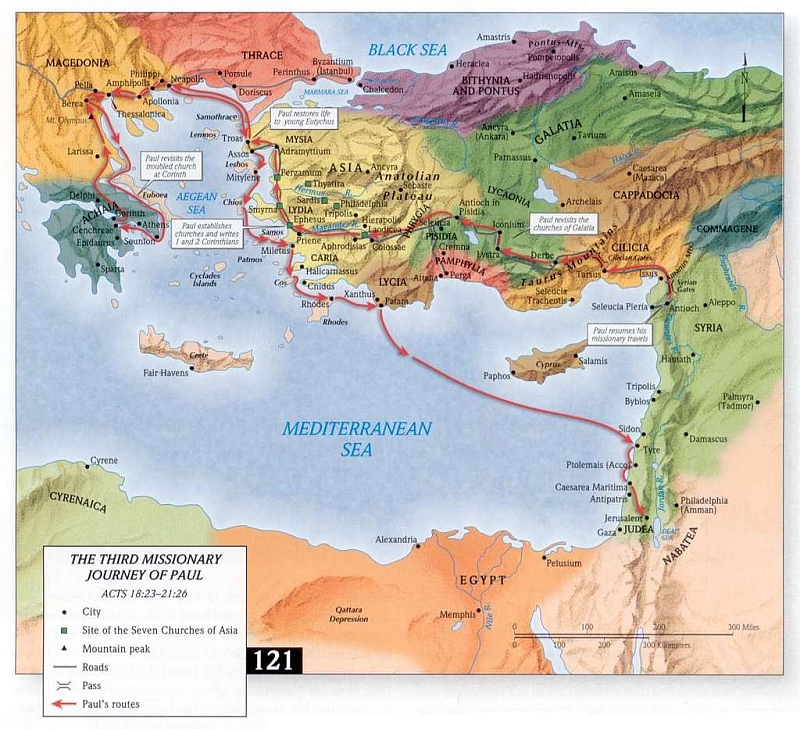(མཛད་པ། 20:1-6)

After the uproar ceased, Paul sent for the disciples, and after encouraging them, he said farewell and departed for Macedonia. When he had gone through those regions and had given them much encouragement, he came to Greece. There he spent three months, and when a plot was made against him by the Jews as he was about to set sail for Syria, he decided to return through Macedonia. Sopater the Berean, son of Pyrrhus, accompanied him; and of the Thessalonians, Aristarchus and Secundus; and Gaius of Derbe, and Timothy; and the Asians, Tychicus and Trophimus. These went on ahead and were waiting for us at Troas, but we sailed away from Philippi after the days of Unleavened Bread, and in five days we came to them at Troas, where we stayed for seven days. (Acts 20:1-6)
For help in understanding these verses see the map.
It was now unsafe in Ephesus, so Paul set off to complete his plan of land and sea travel (see Chapter 19 verse 21); this was to make a final visit to Macedonia, especially Philippi, and then further to Greece as well, including Corinth.
After that, when about to take ship to Jerusalem, he learned of the plot against him. For other Jews travelling on the same boat as pilgrims to the spring festivals in Jerusalem it would have been so easy for them to kill him at sea. Quickly he took boat in the opposite direction going back once again to Phillipi.
His party consisted of representatives from various churches; and, when they left Philippi at last to go to Jerusalem, it now also included Luke the writer of Acts.


